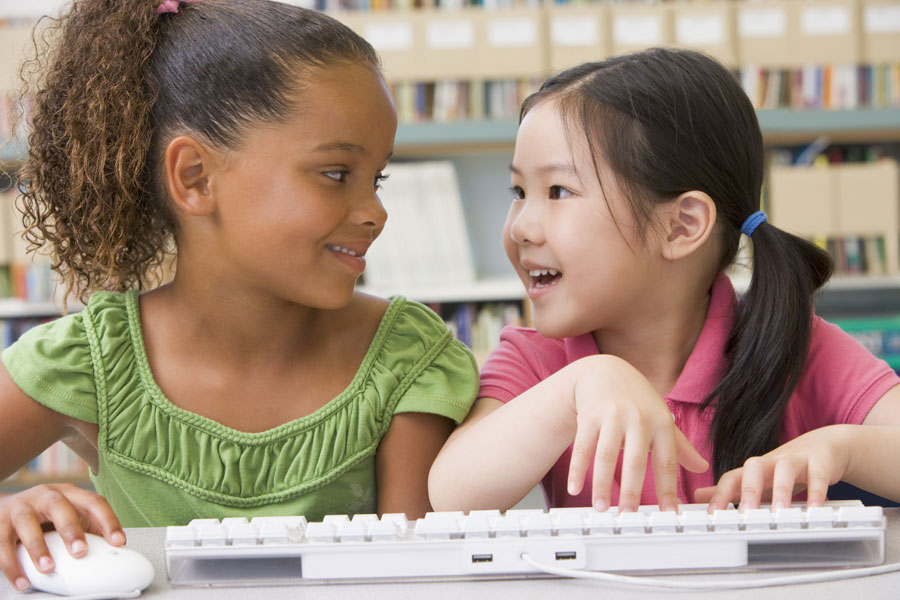
Download an information pamphlet provided by the RCMP: iSmartru
Download the Passport to the Internet: Passport-to-the-Internet
Visit NetSmartz for Parents and Guardians at http://www.netsmartz.org/Parents
Internet Safety Tips for Children[1]
1. Don’t give out personal information about yourself or your family:
– Your real name or the names of your parents, brothers or sister
– Your address or phone number
– Where you go to school
– Where your parents work
– Your parents’ credit card, PIN or any other numbers that only your family should know
2. Don’t think that people really are who they say they are. When communicating with others in chat rooms, remember that not everyone is who they say they are. You might think you are talking to a 10, 11 or 12 year old boy, but instead you might really be chatting with a 40 year old man.
3. Be careful whom you talk to about your problems. You might find it easier to talk about your problems with Internet friends. However, you do not know who they really are. They could be obtaining information about you in order to gain your trust. If you have personal problems, talk to someone you can meet with face-to-face, like a school counselor, your parents, good friends, etc.
4.Don’t buy anything on the Internet with your parents’ help.
5. Never meet an online friend in person without your parents’ permission. Do not meet them alone, and do not go without telling someone where you are going and what you are going to do. If your parents agree to your meeting, make sure a parent is with you the whole time and that you meet in a public place, like a library, restaurant, etc.
6. Don’t send pictures of yourself online. Avoid sending pictures of yourself to someone online with asking your parents first.
7. Follow your parents’ rules for online activities. Stay out of “adults only” sites.
8. Don’t be embarrassed to tell your parents if you see any material on the Internet that you feel uncomfortable about.
9. Never answer anyone who makes you feel uncomfortable or who is pushing you to give out personal information about yourself or your family.
10. If someone offers you money or gifts for nothing, don’t believe them. Don’t answer anyone who offers you something for nothing, especially if you need to give personal information (like you name, address or telephone number) or send a picture of yourself in order to get your prize or gift.
Internet Safety Guidelines for Parents/Caregivers[2]
BECOME MORE COMPUTER LITERATE
- Spend time online with your children to explain your rules for appropriate use of the Internet.
- Know how to use the Internet yourself.
- Consider using online services with special child/youth accounts that have restricted access to chat rooms.
- Choose an Internet provider who will give information about and access to parental control features. Blocking software prevents users from accessing adult material, while filtering software prevents users from accessing sites with certain key words.
- Frequently check your software’s History folder to see what sites your child frequents. This will help you make sure that he or she is not receiving, accessing or sending inappropriate material. You could also check your child’s Favourites folder (or Internet Explorer) or the Bookmarks folder (on Netscape).
- Share or have access to your child’s email so that you can monitor his or her mail.
- Make sure that you are present when your children access private chat rooms. Monitor their communications.
CAUTION YOUR CHILDREN ABOUT GIVING OUT PERSONAL INFORMATION ONLINE
- Find pen-names for your children to use when online. Never let them use their real names.
- Do not fill out online profiles that ask for information about where to contact your children, your home address, phone number etc.
- Ensure that your children do not give out personal information such as your address, phone number, work place or their school’s name and phone number.
- Make sure they never give out your credit card, PIN numbers, SIN number or the name of your bank/credit union to anyone whether online or not.
- Supervise all online purchases.
SET GUIDELINES FOR FACE-TO-FACE MEETINGS REQUESTED BY ONLINE FRIENDS
- Never allow your children to arrange face-to-face meetings with another computer user without first getting your permission.
- If you do permit a meeting, stay with your child during the meeting or ensure that another responsible adult stays with your child throughout the meeting and leaves with him or her.
IF YOUR CHILD RECEIVES ANY OBSCENE OR THREATENING MATERIAL…
- Ensure that your child knows to delete any email with an attachment from anyone he or she does not know personally. These might contain computer viruses or obscene material.
- Contact the police.
- Contact your Internet service provider.
KEEP COMMUNICATION OPEN WITH YOUR CHILDREN
- Pedophiles are people who have sexual desires directed towards children. They frequently befriend lonely or troubled children online in order to gain their trust. In addition, some people try to gain the trust of a child in order to kidnap him or her.
- Talk openly about what material is inappropriate or obscene. Ask your children to inform you at once if they see or receive anything that is inappropriate or obscene.
- If your children seem lonely or trouble, spend more time with them. Find a good counselor to help resolve their problems. Restrict and monitor the time they spend on the Internet.
Note
Even if your children do not have access to the Internet in your home, they will have access at their friends’ homes. Internet safety rules should apply no matter where they are when they are using the Internet.
[1] Adapted from Teen Safety on the Information Highway, National Center for Missing and Exploited Children.
[2] Adapted from Teen Safety on the Information Highway, National Center for Missing and Exploited Children.